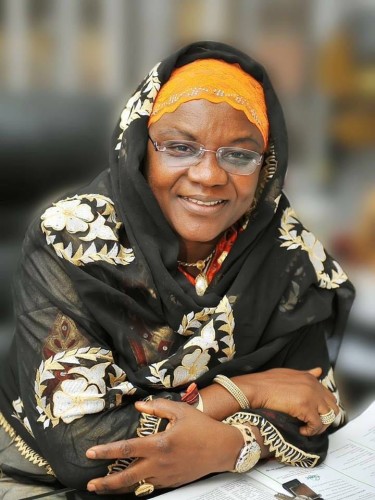
Tackling and curbing corruption have been a serious challenge for
many developing countries around the globe.
The Chairman Senate Committee on Foreign Affairs, Senator Monsurat
Sunmonu representing Oyo Central at the National Assembly has urged
more foreign countries to support the tackling of corruption advocacy
by the Nigerian government.
She said this in an International Parliamentary Conference on
Sustainability, Energy and Development which held in Westminster,
London.
Sunmonu who also sat as a panellist in a session titled “Curbing
Corruption – what is the role of parliaments?” which was Chaired by
Chair of the UK House of Commons International Development Committee, Stephen Twigg MP, said “I encourage countries to come together to help resolve the problem of corruption”. Stating that with the world becoming a smaller place and no country can single-handedly fight
corruption”.
She further said “No one country can fight corruption alone. With
technological advances and the development of a global economy, the
world has become a smaller place. This means that no single country is
able to legislate and succeed in the fight against corruption by
itself. For example, if financial corruption takes place in Nigeria,
but the funds are banked in Switzerland, Villas purchased in Spain and
businesses are invested in the US, the problem has moved far beyond
the country where the corruption or crime first took place”.
The Senator also pledged her support for President Buhari in his war
on corruption, saying that as Chair of the Foreign Affairs committee
she would do what she could to assist the Federal Government in
addressing the menace called corruption.
Excerpt from her remarks:
Historically in Nigeria, politics and governance have been linked with corruption. To many this may come as no surprise, because we frequently hear that mind blowing amounts of Nigeria’s national wealth have been discovered in a foreign account somewhere. Importantly however, President Buhari has made the tackling of corruption his primary objective. Now, while he may be able to prevent more corruption taking place, the legislature has a very important role to play in not only supporting this endeavor, but also to ensure the repatriation of already stolen wealth.
I believe that in Nigeria we have adequate and sufficient laws to fight corruption. All that is needed is proper enforcement. Nigeria has at least three organsations tackling corruption, and more than four others pursing law and order. To name a few, there is the Economic and Financial Crimes Commission (popularly known as the EFCC), which was created by statute in 2004, and is mandated to combat economic and financial crimes. Secondly, there is the Independent Corrupt Practices and Other Related Offences Commission (known as ICPC) established by the Corrupt Practices and Other Related Offences Act of 2002. The ICPC’s duty is to receive complaints, investigate and prosecute cases of corruption and other related offences. The Code of Conduct Bureau (and Tribunal) was created in 1989, for the prevention and adjudication of corruption cases in Public Service. This is aside from the Criminal and Penal Codes that govern crime generally and obtain in the North and South of the country.
Like I said earlier, Nigeria has enough domestic focussed legislation to fight corruption. As regards this already existing legislation, I believe the role the legislature can play is more review based, to ensure the existing legislation is more robust, by closing loopholes that have been exploited over the years. An important development is financial autonomy and independence of these Agencies, so that they themselves are not the subject of corruption.
I also think that the punishments for corruption need to be made more of a deterrent. This does not however apply only to Nigeria. I often see in the news corruption cases being punished with a slap on the wrists. Yes, each country is to determine its own individual policy as regards punishment, but with the world becoming a smaller place a consensus needs to be reached.
Where I believe a lot more can be done is in the international sphere. And what I mean by this, is that there is a lot of ill-gotten wealth from Nigeria all over the world. President Buhari has visited many of the countries where investigations reveal this wealth has been stashed. This is where the legislature can really come to the fore. You see, any bilateral or multilateral agreement, or MoU signed will be key to repatriating Nigeria’s wealth, and also acting as a deterrent in future. Simply because when a criminal knows that there is nowhere to hide he or she may not steal. It is the legislatures role to ensure that such agreements signed by the Executive are domesticated and become law. In my capacity as Chair of the National Assembly Committees on Foreign Affairs, my team and I are currently reviewing existing agreements and pushing for ratification of those that have not been previously ratified.
And that is why forums like this, where lawmakers from all over the world can reach a consensus to actively fight and destroy corruption. Where lawmakers can agree to influence policy, and urge their states to enter into treaties and multilateral agreements with other countries to prevent, repatriate and prosecute corruption cases and matters, wherever the culprits may be, wherever the loot is hidden, wherever the assets are based. There needs to be nowhere to run or hide.
I began by saying that no country can singlehandedly tackle corruption. If it affects one country it will affect us all. To this end, we must absolutely work together.









